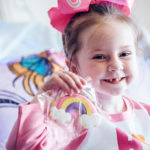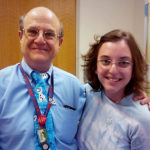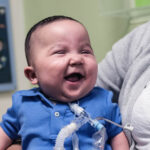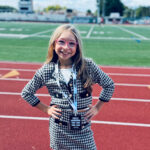An unbreakable bond: Brothers turn medical complexities into superpowers
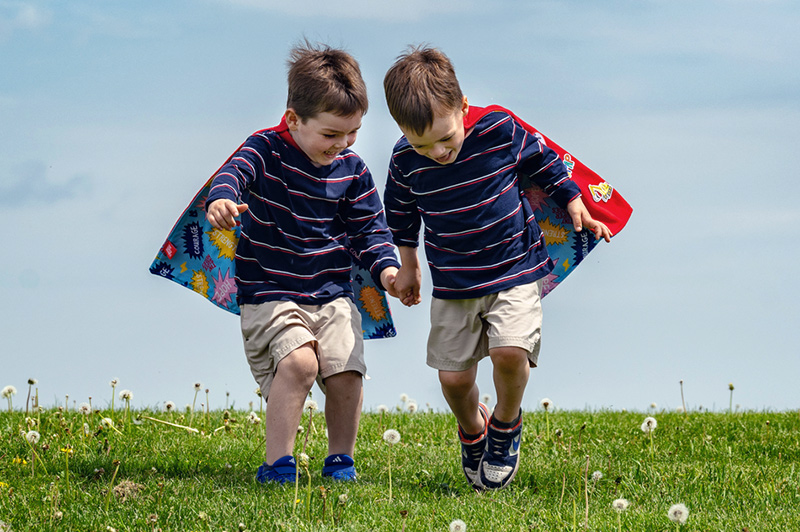
“Look! Is that one JetBlue? I think that one’s Delta!”
Running through the grass, climbing on the jungle gym, and watching planes take off and land at nearby Logan Airport: Castle Island in South Boston is Patrick and Teddy’s happy place. The brothers, ages 4 and 3 respectively, are almost as obsessed with airplanes as they are with trucks, hockey, and having each other’s back.
The boys love to visit the Castle Island park whenever they travel into the city from their home on the South Shore of Massachusetts. And they’re regulars: Both boys have complex medical conditions that have made them frequent visitors to Boston Children’s Hospital.
“They’re not afraid of going to the hospital — they think it’s fun and have positive experiences,” says their mother, Meg. “That’s a testament to the people who work there.”
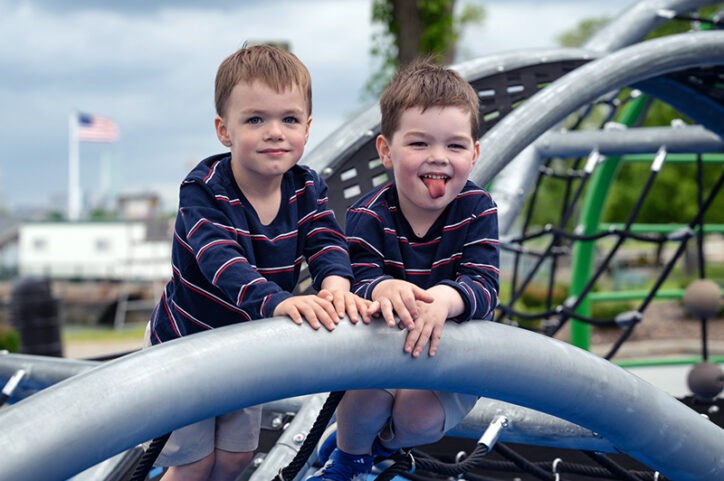
A changed kid
Patrick has been coming to Boston Children’s since he was a baby. At just 4, he’s already dealt with a bout of Kawasaki disease, neutropenia, and multiple allergies. So when the severe constipation he experienced almost from birth didn’t resolve, his parents brought him to see Dr. Samuel Nurko, director of the Motility and Functional Gastrointestinal Disorders Center. After colonic manometry testing confirmed a motility disorder, Dr. Nurko consulted with surgeon Dr. Terry Buchmiller and recommended that Patrick receive a colostomy. This bypasses the large intestine so that stool exits the body through a surgical opening (called a stoma) and into a bag.
Although Meg and her husband, Charlie, worried that Patrick’s colostomy might create even more complexity for their family, the result has been the opposite. “He has less pain, more energy, and a happier demeanor,” says Meg. “He’s a changed kid.”
It helps that Patrick’s care team is always there for him. “Dr. Nurko even called us from Mexico once to talk through his care,” she says. “You’d think Patrick was his only patient.”
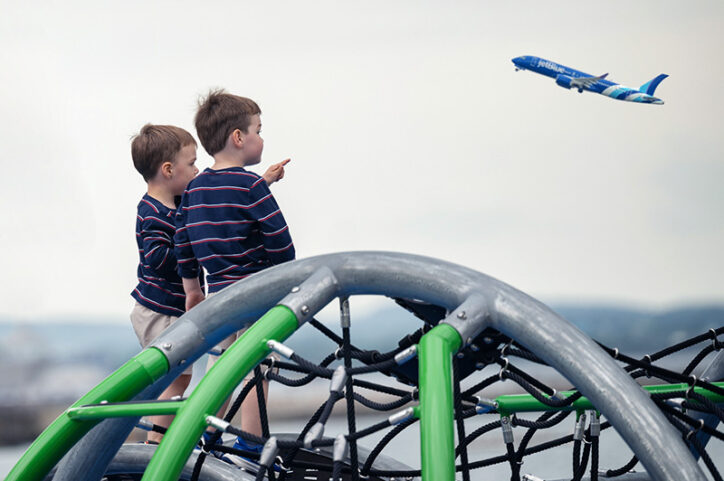
On ‘Teddy time’
Born at 27 weeks, Teddy is only eight months younger than his big brother and has coped with his own set of medical challenges. Like many preemies, he needed respiratory support at first. But when he had trouble weaning off that support, he was diagnosed with both bronchopulmonary dysplasia (BPD, a chronic lung disease common in preemies) and tracheobronchomalacia (collapse of the airway when breathing). Both conditions led Teddy to aspirate when he tried to drink or eat.
Although surgery with Dr. Benjamin Zendejas-Mummert helped address the latter, Teddy still has BPD and residual airway malacia, for which he sees pulmonologist Dr. Jonathan Levin. A continuous positive airway pressure (CPAP) machine, percussion vest, and nebulizer help him breathe easier. Because he still aspirates, Teddy works with Kara Larson in the Aerodigestive Center to overcome his feeding difficulties. Meanwhile, a G-tube ensures he receives enough nutrition. “The whole team has been amazing in helping Teddy through it,” says Meg.
When he starts morning preschool in the fall, he’ll get his G-tube feeds before and after school so he can enjoy as much of the experience as possible. “He’s going slowly but he’s made so much progress since surgery,” she says. “We like to say he’s on ‘Teddy time.’”
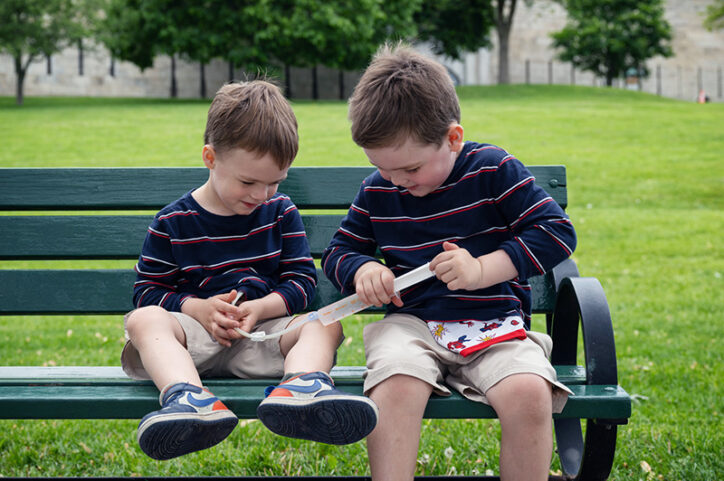
Confidence and positivity
Their closeness in age and similar medical experiences have helped Patrick and Teddy forge an unbreakable bond. A typical older sibling, Patrick is sweet, funny, and fiercely protective of his brother — and even helps participate in his care when Teddy needs his nebulizer or a G-tube feed. Outgoing and empathetic, Teddy likes to be in the middle of the action, even in large groups. Both are incredibly resilient. On a recent visit to Castle Island, the boys giggled as they ran past the beach together in superhero capes, Teddy leading the charge with Patrick close behind.
The brothers view their health challenges as superpowers and have even named their stoma (“Stan”) and G-tube (“George”). It hasn’t always been an easy road, but the support they’ve received — from relatives, friends, other families with complex medical needs, their faith, and their care teams — has lifted them up, says Meg.
“Boston Children’s has helped instill that positivity in them from the start, so they feel confident and ‘normal,’” she explains. “If our boys can wake up every morning and be so happy, that gives us a lot of hope as parents.”
Learn more about our Motility and Functional Gastrointestinal Disorders Center, Esophageal and Airway Treatment Center, and Aerodigestive Center.
Related Posts :
-

'Life-changing' appointment helps Georgia cope with motility issues
Five-year-old Georgia MacAloney loves dancing, cheerleading, and riding her bike. “She’s just a happy, regular kid,” says her mother, ...
-

‘Never stop looking for answers’: Andrea’s journey with dysmotility
As a volunteer at Caritas Internationalis, Andrea Hernandez loves helping feed the hungry. Yet, until recently, Andrea herself was unable ...
-

Bringing Xavien home: One family’s journey with bronchopulmonary dysplasia
Xavien Velazquez is getting ready to celebrate his first birthday. It’s a milestone for every child but especially meaningful ...
-

Using her voice: After tracheomalacia treatment, Claire keeps her eye on the ball
Claire Kantany is only 10, but she knows what she wants to do when she grows up — in fact, she’...


